John Marshall & Co. brings message of the “wonders of wool.”
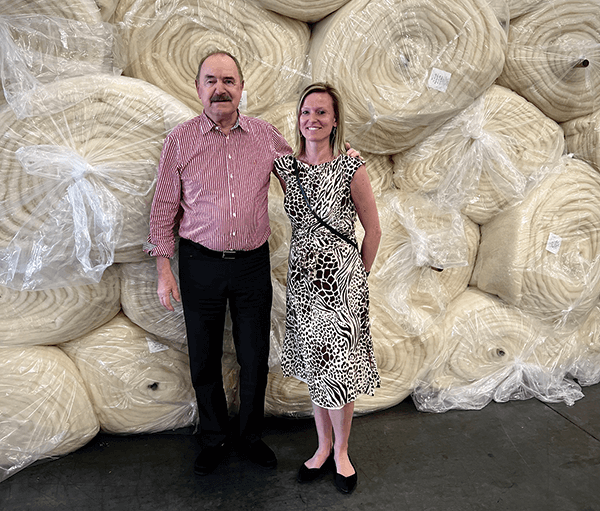
When it comes to high-quality, crimped New Zealand wool for use in sleep products, Joma Wool from John Marshall & Co. Ltd. has long been the go-to brand for mattress, pillow and topper makers worldwide, as well as furniture and home decor sources.
John Marshall began marketing its unique crimped wool to the bedding industry as Joma Wool in 1988. But the company’s roots trace back nearly a century to 1930, when it was founded by Fred Marshall, a native of Yorkshire, England. He traveled regularly to New Zealand to buy wool before moving to Christchurch and starting his own company focused on wool brokering and independent buying.
In 1955, Fred Marshall passed the business on to his son, who changed the name to John Marshall & Co. Ltd. His son, Peter Marshall, led the company through a period of diversification, which included adding flax mills, wool scouring, and wool carding and combing operations. In 1988, he sold the business to Wrightson’s. At that time, Wrightson’s was a division of Fletcher Challenge, which once owned a multitude of farm-based businesses in New Zealand.
Peter Crone acquired John Marshall from Fletcher Challenge in 1991. Crone had joined John Marshall in 1984, “enough time to see the growth potential” for the company’s newly developed machine-crimped wool. So, when Fletcher Challenge opted to divest some of its holdings, Crone took the helm. By that time, John Marshall had restructured its business to concentrate on the global trading of wool, including crimping, which enhances the natural wave in each individual fiber to create a higher degree of “bounce back” and resilience.
A transformative moment
“When we came out with Joma crimped wool in 1980, that opened an entirely new market for us with bedding manufacturers in the U.S. and other countries,” says Crone, who three decades later continues to serve as CEO and sole owner of John Marshall. “We knew this product had a lot of legs, as did the John Marshall name, which was well established in countries across the globe.”
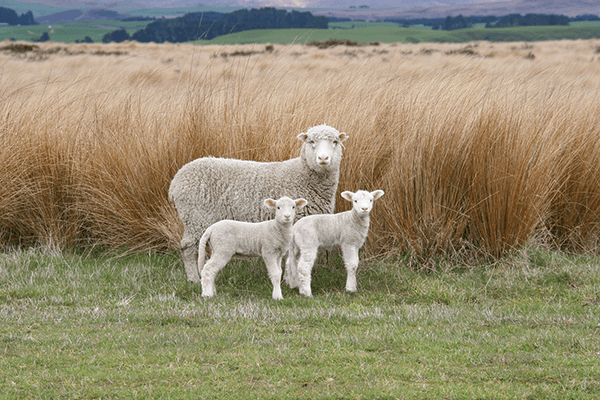
New Zealand sources, crossbred to enhance specific
characteristics of their wool.
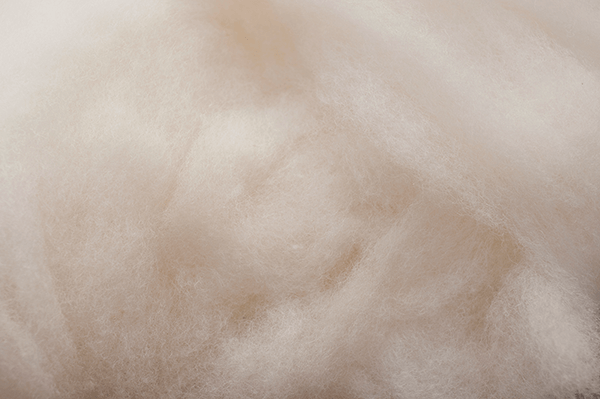
By adding an extra, proprietary step in the process of mechanically crimping pure, natural New Zealand wool, John Marshall’s wool acquires beneficial properties that make it particularly attractive for bedding, according to Crone. “We found that our crimped wool gained 40%-50% in volume, without adding any weight. It also was springier and more resilient, allowing a mattress to bounce back to its original shape even after constant pressure is applied,” Crone says.
John Marshall dubbed this unique product Joma Wool, and over the years, it has continued to perfect the production process and the range of wool products within the line.
“With all the sleep benefits of wool, plus additional properties that make it ideal for bedding, Joma Wool is now found in premium mattresses and a wide range of other products all over the world,” Crone says. “It is the only crossbred wool mechanically engineered for use in the mattress/bedding industry. The bulk-to-weight ratio makes it very attractive to the end user.”
Bulk is the ability of wool to fill space. It is an important factor in the appearance and performance of wool products and plays a key role, not only during processing, but also at the point of sale.
“Bulk makes a huge difference when using the product, whether that is a sleeping surface or a furniture piece,” says Evi Brilleman, vice president of marketing and business development.
The bulk of wool depends on its compression history — how often it has already been compressed, to what extent and for how long. Each of these variables must be considered when measuring and buying wool.
“Bulk is largely determined by fiber crimp and fiber diameter,” Brilleman says. “Joma Wool typically has 12-15 crimps per inch, which makes the fiber highly resilient.”
In addition to sleep products, other key markets for John Marshall’s wool include the outerwear and apparel, carpet, home textile and furniture industries. The company’s complete lineup ranges from ultrafine Merino wool for use in apparel to coarse, crossbred wool used for products such as insulation. Crossbred wool is the result of crossing several different sheep breeds selected for specific characteristics such as wool durability.
Joma Wool leads way
New Zealand sheep are renowned for having the “strongest and cleanest wool due to a combination of climate, care and expert farming practices,” Crone says, adding that wool in general is an extremely flexible and durable fiber. It can be bent more than 20,000 times without breaking and still will return to its original shape. It also is known for its fast recovery.
When it comes to bedding, Joma Wool is John Marshall’s flagship brand. Originally developed in the 1980s for the Japanese futon market, Joma Wool quickly found a niche with premium mattress manufacturers in the United States. In bedding, Joma Wool can be used as a loose, high-bulk fill or in combination with other materials as an component in comfort layers.
Wool also has a wide range of sleep benefits. “From being extremely soft and comfortable to being highly resilient and durable at the same time, wool is naturally thermoregulating, absorbs vapor, repels liquid and controls odor,” Brilleman says. “The natural fiber is nonallergenic and has superior flame-resistant properties.”
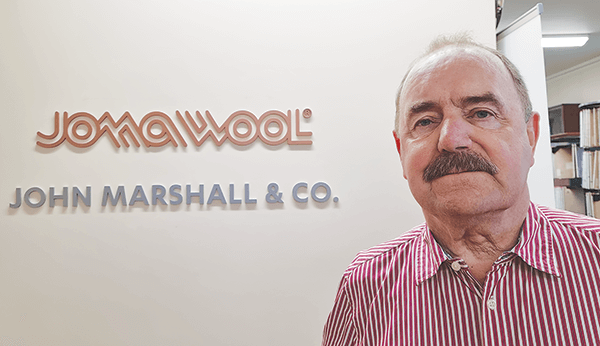
John Marshall for more than three decades.
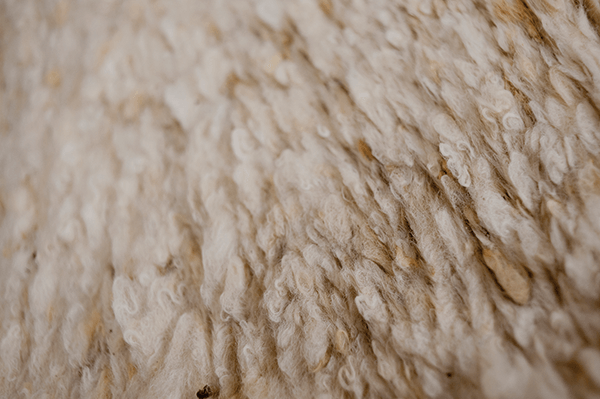
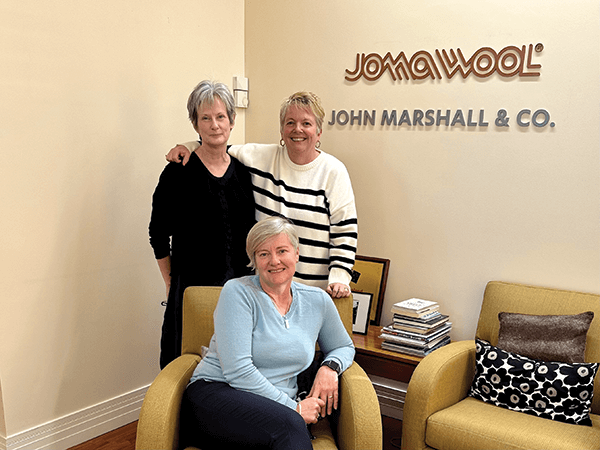
Sally Evans, left, Vicky Bishop and Bridget Macgregor —
provides support to the company’s U.S. customers.
In addition to loose Joma Wool, John Marshall offers several different applications for use in bedding. They include:
- Joma Wool Pearls are an engineered form of Joma Wool specifically designed to be used as a loose fill for interior furnishings, including sleep products. Joma Wool Pearls — or knops, as they are sometimes referred to — are made of pure crimped New Zealand wool. The pearls, which Crone says “have more bulkiness than any other natural fiber we have tested,” are a resilient and cozy material, making them a good fit for pillows, comforters, seating and back cushions.
- Joma Wool Batting, a nonwoven, layered, 100% wool batt, is designed for use in the top layer of a mattress and/or the quilt of a mattress cover, as well as in futons and sofas. This soft, fluffy material can be made in different thicknesses and densities. Exotic natural fibers, such as cashmere and silk, can be added to enhance performance in amounts representing as much as 10% of total product weight.
- Joma Memory Wool, the newest addition to the John Marshall line, is a needle-punch product that consists of a higher-density layer. It often is used right below wool batting to provide a natural FR barrier in the top layer of a mattress. John Marshall promotes it as “memory wool” since it can easily replace a foam layer in a mattress.
“Joma Memory Wool is steadily gaining interest among both mattress and furniture manufacturers as the awareness regarding sustainability grows,” Crone says. “We see more and more companies using natural components for comfort layers, and our Memory Wool gives them another appealing option.”
Because John Marshall offers the same pure crimped New Zealand wool in several applications and products, it is highly efficient for production teams to manage, Brilleman says. “To give an example: One of our customers made a sofa almost completely out of wool, reducing the number of SKUs that are used and replacing non-natural materials at the same time.”
John Marshall’s wools also have benefits for boxed bed constructions, Brilleman adds. “As one inch of Joma Wool consists of 12-15 crimps, our wools are perfect for cost-effective shipping since they provide a lot of bulk without much weight, and they also are easy to compress.”
For the apparel and home textile industries, Halo Wool Knit is one of John Marshall’s latest innovations. This product consists of pure New Zealand wool knitted through a mesh made of recycled polyester yarn.
“It delivers the unparalleled performance of wool in the form of a free-hanging fabric insulation,” Brilleman says. Halo Wool Knit is popular for products such as sleeping bags. It also provides a comfortable filling for comforters.
Gunning for growth
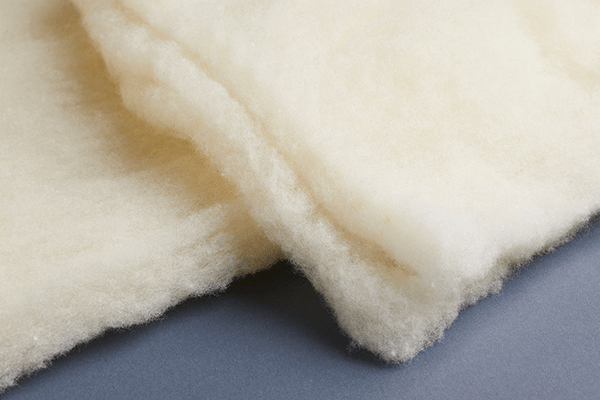
and/or the quilt of a mattress cover, as well as in futons and sofas.
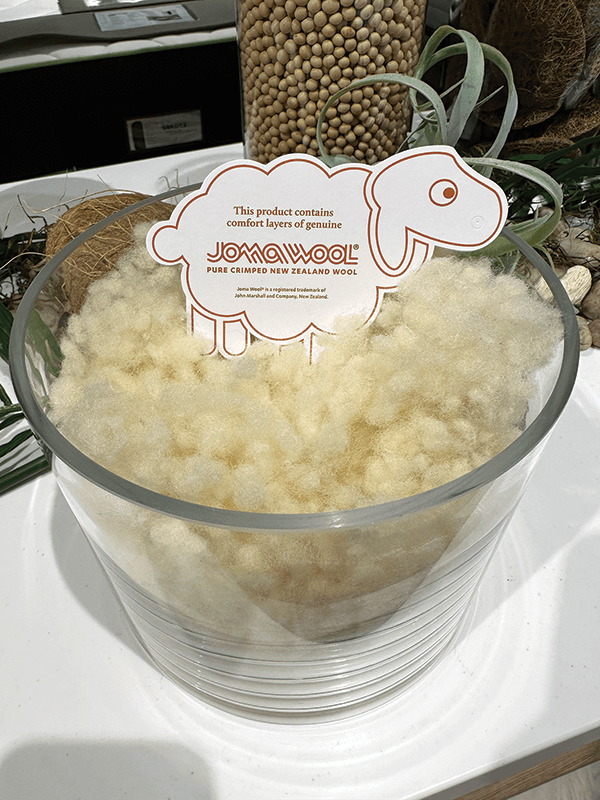
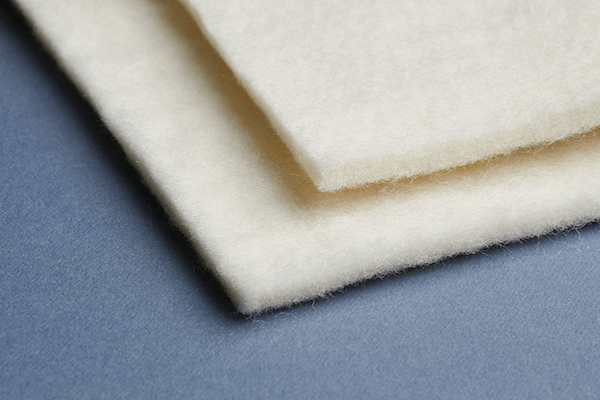
needle-punch product used right below wool batting to provide a natural FR barrier in the top layer of a mattress. John Marshall also promotes this as “memory wool” because it can easily replace a foam layer.
Always on the lookout for new opportunities, John Marshall is “set for growth in 2023 and that will be mainly driven by carrying our messaging out to a broad range of different types of customers,” Crone says. That group includes mattress manufacturers, who use batting or needled wool in the top layers of a mattress; processors, who process Joma Wools into batting; retailers, “who love the unique messaging of the Joma Wool brand;” cover suppliers and quilters, “who are often the first in line to use our wool batting for integration into mattress covers;” pillow manufacturers, who use Joma Wool Pearls; furniture makers; and “last but not least, the end consumer, who loves the sheep and strives to live more sustainably every day.”
According to Crone, the market for wool in 2022 was slow overall as economies worldwide struggled with inflation. The more premium market segments, however, did not suffer as much, which resulted in stable performance for Joma Wool products.
“There is definitely room for growth this year and we have noticed that our brand is quite well-known among the mattress manufacturers and retailers throughout the world,” Brilleman says. “We also see opportunities to bring our brand closer to the end consumer, which is why we are slightly changing course by working with our customers to support them in bringing messaging closer to their retail partners and consumers via our social media channels and advertising.”
One of John Marshall’s new marketing initiatives is the “Wonders of Wool” blog, which focuses on explaining “why we should choose natural fabrics in our daily lives and informing the public about the beautiful wonders of wool” — aka the “WOW factor,” Brilleman says.
In all its communications, John Marshall focuses on four key messages, according to Crone: “One, we put nature first. Two, we promote health and well-being. Three, we pursue innovation and performance. And four, we are true to our word and protect our brand by carefully selecting the right partners and customers.”
Shared values

One of John Marshall’s key missions is “to take care of us, the people and the planet,” Brilleman adds. “Sustainability is in our DNA. John Marshall sources with genuine care for animals and the environment, buying gently shorn wool from grass-fed crossbred sheep that roam freely across some of New Zealand’s most remote farms. We are committed to helping bed producers deliver healthy sleep by offering natural wools — free from plastics or harmful chemicals — that have tons of sleep benefits.”
John Marshall does not apply any chemical treatments or finishes to its products, according to Crone. “The wools are inherently nonallergenic and naturally thermoregulating without using any additional applications,” he says.
Joma Wool also fits into a sustainable, circular model of production that minimizes waste, Crone adds. All its wools are fully biodegradable after their lifespan is completed.
In addition, John Marshall takes sustainability seriously in its own operations, making waste wool from production available to gardeners, who mix it with compost or mulch to help with water retention, and road construction crews, which use it for erosion control. “Since we work with a natural product, there are lots of ways our excess materials can be repurposed,” Crone says.
In selecting its business partners, the John Marshall team looks for a similar mindset. “The type of companies that make a good strategic partner for us are those who share the same values as we do — caring for people, animals and the environment,” Crone says. “We also look for partners who will help us bring the correct messaging regarding our Joma Wool brand to their customers.”
The company protects its Joma Wool brand by choosing customers who use the line for 100% wool applications, such as batting, needled wool and pearls, rather than mixing them with other synthetic fibers.
While the U.S. market accounts for a small percentage of John Marshall’s total wool sales — with nearby markets in Asia driving a much larger share of its business — the U.S. sleep market has been identified as a key target for growth as the company moves to focus more attention on Joma Wool and other value-added products.
To support U.S. customers, the company has one warehouse in Ladson, South Carolina, and two warehouses in the Los Angeles area.
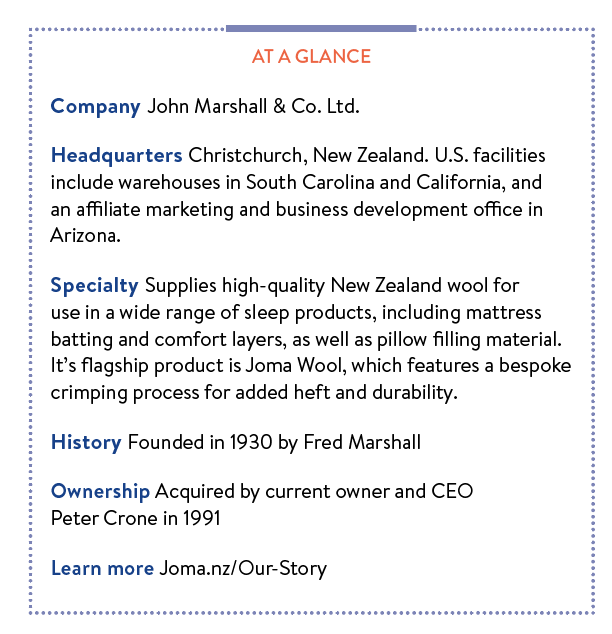
“Both are strategic sites for us and are located perfectly to serve our customers on the East and West coasts,” Crone says. “Customers who cannot store big orders can rely on our warehouses for storage.”
John Marshall’s global marketing team consists of Crone, Brilleman and Laura Griffiths, “a creative mastermind who has supported the Joma Wool brand for several years,” Brilleman says.
In addition, John Marshall has an affiliate office in Scottsdale, Arizona, that handles marketing and business development activities in the United States. The company plans to expand the team in Arizona “to be closer to our customers, address all domestic orders and execute on marketing activities specifically addressed to the U.S. market,” Brilleman says.
Another region that holds good promise for growth is Europe. “The European market is very scattered, but we can already see a trend where brands and manufacturers, in both the mattress and home furnishings industry, are trying to find natural solutions and are starting to replace non-natural components with natural materials in order to respond to the growing demand for sustainable products triggered by Generation Z,” Brilleman says.
Nature’s way
John Marshall buys its wool at auction, both in-person and online. With the wool it buys and sells, it is an avid supporter of certification programs that protect people, animals and the environment, Crone says.
It participates in three key programs that meet those criteria: Oeko-Tex, which tests products for hundreds of harmful substances; New Zealand Farm Assured, whose seal of origin certification covers origin, traceability, food safety and animal welfare standards; and Oritain, an independent auditor that can test products anywhere in the supply chain to ensure that they contain genuine Joma Wool of New Zealand origin.
“Our wool is fully traceable,” Crone says. “We know exactly where all our fiber comes from — New Zealand sheep, living in a natural environment and grazing on grass in open areas. We are committed to product integrity and are happy to offer customers the peace of mind that comes with independent verification.”
When it comes to processing its wool, John Marshall has its own facility in Christchurch called Wool Technologies. The operation started as a joint venture with Aoteroa Wools, but is now 100% owned by John Marshall, which continues to invest in the plant to improve efficiencies and the working environment.
Operating with a small workforce of about 25, John Marshall takes a family approach to its business. “We all share the same values, both in business and family life,” Crone says. “We are a tight-knit team, which makes life easier.”
According to Brilleman, customers around the world are looking at wool today with fresh eyes. “They love that it is sustainably produced, environmentally friendly, healthy and comfortable,” she says.
“We are proud to be one of the pioneers in transforming the home furnishings industry by letting nature take center stage,” she adds. We want to help change the world of sleep so that everyone can enjoy a longer, deeper, healthier and more comfortable night’s rest.”




